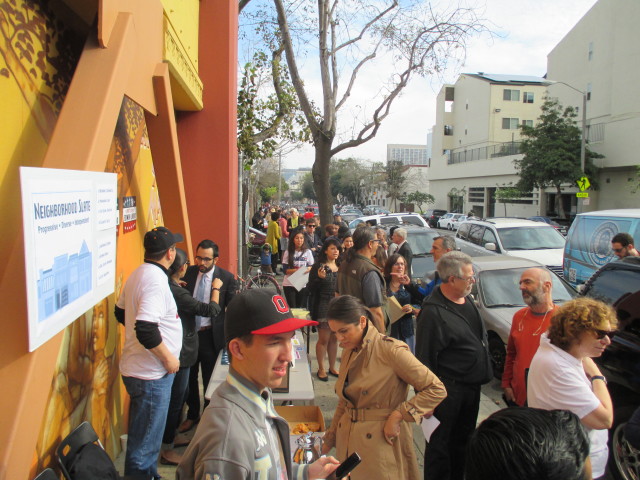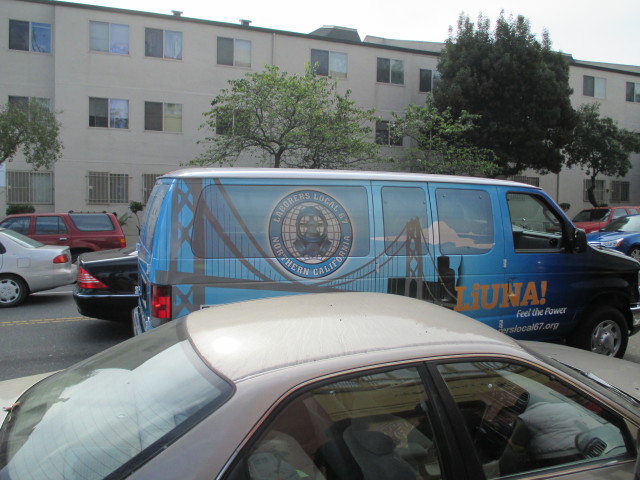
By Tim Redmond
JANUARY 12, 2015 – Most of the time, electing San Francisco delegates to the California Democratic Convention is a pretty low-key affair. A couple of party workers set up shop in a community center, maybe 100 people show up, everyone shakes hands and chats with their friends, and they cast paper ballots for about a dozen delegates who then represent the local Assembly district at the state convention. Where typically not a lot happens anyway.
But as I said a few days ago, 2015 is all about 2016 – and there’s going to be a heated state Senate race in 2016, likely to pit Sup. Scott Wiener against a representative of the progressive side of politics (maybe even Tom Ammiano), and that (like the David Campos-David Chiu race) will be a proxy for the larger progressive tenant and working class-vs.moderate pro-tech-and-landlord political power struggle.
And both sides see the stakes as high: The left fell short in the Campos race, and has no strong candidate for mayor, and with Ammiano termed out of the Assembly, is short on senior elected officials. Wiener is a formidable campaigner and fundraiser, and I’d be startled if Ron Conway doesn’t come in with big money on his side.
The state Democratic Party, through its convention delegates, could endorse one of those candidates, and the party nod is powerful. Particularly when the local Democratic Party has been taken over by the landlords. So over the past few days both sides have been organizing like crazy to get people to come out and vote for delegates.

I showed up at the African American Art and Culture Center on Fulton Street, where the balloting was happening, at around 10:30 Saturday morning. The polls were open from 10 to noon. The place was packed.
Cars circling the block looking for parking. Vans and buses double parked out in front. Clusters of people handing out fliers and slate cards at the door. And a long, long line to get in.
Nobody expected this level of turnout. Paul Hogarth, who was helping organize the event, was stunned. “We’ve never seen this before,” he told me. “That’s why we’re overwhelmed and way understaffed.”
The center wasn’t set up to handle what turned out to be more than 700 people. The elevator, which only holds four at a time, broke down. The Wifi wasn’t enough to handle all the computers that were needed to check voter registrations. To get to the packed room where the voting happened, you had to climb three flights of narrow, crowded stairs.
By the time I left, close to noon, the line just to get into the building was a block long.
Hogarth and Hene Kelly, a longtime Democratic Party activist, did their absolute best to keep things moving, and almost everyone on hand was patient and polite. When the elevators stopped (with people in them) Kelly made sure the trapped voters were safely rescued, then hand-carried ballots downstairs for people with mobility issues. The volunteers had to run back to the print shop twice to get more ballots.
Nobody (well, almost nobody) cut the lines.
In the end, the slate of 14 candidates supported by Wiener and Chiu won, decisively. That’s pretty unusual in itself – like Democratic County Central Committee elections, slates run together but voters pick and choose.
In this case, there was little cross-voting; the Wiener/Chiu forces were disciplined and stuck to their slate. The building trades unions, which support Wiener, sent buses full of members to vote. The progressives worked the phones and email to get their folks out, but it wasn’t enough.
Will this make a huge difference in the 2016 state Senate election? Maybe not. The rules for the Democratic Party endorsement are complicated, and the bar is high, and in most contested primaries, the party endorses nobody.
But as a sign of how heated the politics of San Francisco have become in 2015, it was epic. Ron Conway has said, openly, that he wants to “take back the city” from the progressives. The mayor has clearly signaled which side he’s on. And Wiener and Chiu have made it clear that they are going to contest the next race for state Legislature fiercely and aggressively at every possible level.
That’s a wake-up call for the progressives: There’s a lot of work to do.






